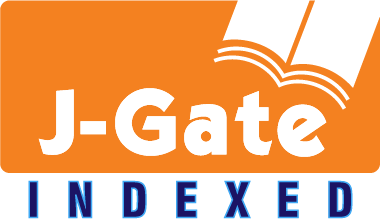Opi̇ni̇ons of pre-servi̇ce teachers on di̇stance educati̇on and teachi̇ng practi̇ce course
DOI:
https://doi.org/10.26809/joa.6.3.08Keywords:
Distance Education, Teaching Practice, PandemicAbstract
The pandemic caused by the COVID-19 epidemic, which is effective worldwide and continues to show its negative effects in every field, has also shown its negative effects in higher education and an urgent transition to distance education has been experienced. With distance education, teacher candidates in education faculties started to see applied courses in a theoretical way. Continuing education and training activities, including the teaching practice, which is based on practice, are carried out online, and the positive or negative aspects of this progress on students could not be evaluated due to the rapid and unpreparedness of the process. With this research, it was aimed to obtain and evaluate the opinions of teacher candidates regarding distance education and teaching practices during the pandemic process. The case study, which is one of the qualitative method patterns, was used in the research. The collected data were analyzed with content analysis technique, and the MAXQDA 2020 package program was used in data analysis. The study group of the research consists of teacher candidates who are studying at Çanakkale Onsekiz Mart University Faculty of Education and who also take the course of distance education and teaching practice. In line with the findings, it was concluded that the pre-service teachers found distance education inadequate due to the way the lessons were taught and internet problems, and that the continuation of the teaching practice with distance education would create a lack in terms of experience. In the research, there are also the results that distance education has deficiencies in terms of communication and distance from the classroom environment, and the instructors are deemed sufficient in this process.
Downloads
References
AGNOLETTO, R., & QUEİROZ, V. (2020). COVID-19 and the challenges in Education. Brazil: Universidade de São Paulo.
BAKİOĞLU, B., & ÇEVİK, M. (2020). COVID-19 Pandemisi Sürecinde Fen Bilimleri Öğretmenlerinin Uzaktan Eğitime İlişkin Görüşleri. Electronic Turkish Studies, 15(4).
BAŞARAN, M., DOĞAN, E., KARAOĞLU, E., & ŞAHİN, E. (2020). Koronavirüs (Covıd-19) Pandemi Sürecinin Getirisi Olan Uzaktan Eğitimin Etkililiği Üzerine Bir Çalışma. Academia Eğitim Araştırmaları Dergisi, 5(2), 179-209.
BOZKURT, A. (2020). Koronavirüs (Covid-19) pandemi süreci ve pandemi sonrası dünyada eğitime yönelik değerlendirmeler: Yeni normal ve yeni eğitim paradigması. Açıköğretim Uygulamaları ve Araştırmaları Dergisi, 6(3), 112-142.
BÜYÜKÖZTÜRK. Ş. (2013). Sosyal bilimler için veri analizi el kitabı. Pegem Yayınevi, Ankara.
CAN, E. (2020). Coronavirüs (Covid-19) pandemisi ve pedagojik yansımaları: Türkiye’de açık ve uzaktan eğitim uygulamaları. Açık öğretim Uygulamaları ve Araştırmaları Dergisi, 6(2), 11-53.
COECKELBERGH, M. (2020). The postdigital in pandemic times: A comment on the Covid-19 crisis and its political epistemologies. Postdigital Science and Education, 2(3), 547-550.
CRESWELL, J. W. (2011). Controversies in mixed methods research. The Sage handbook of qualitative research, 4, 269-284.
ÇAKIN, M., & AKYAVUZ, E. K. (2020). Covid-19 süreci ve eğitime yansıması: öğretmen görüşlerinin incelenmesi. International Journal of Social Sciences and Education Research, 6(2), 165-186.
DANİEL, J. (2020). Education and the COVID-19 pandemic. Prospects, 49(1), 91-96.
ERKUT, E. (2020). Covid-19 sonrası yükseköğretim. Yükseköğretim Dergisi, 10(2), 125-133.
GEWİN, V. (2020). Five tips for moving teaching online as COVID-19 takes hold. Nature, 580(7802), 295-296.3
GİANNİNİ, S. & LEWİS, G.S.(2020). Three ways to plan for equity during the coronavirus schoolclosures. https://gemreportunesco.wordpress.com/2020/03/25/three-ways-to-plan-forequity-during-the- coronavirus-school-closures/web,Erişim Tarihi: 16.03.2021
KARADAĞ, E. ve YÜCEL, C. (2020). Yeni Tip Koronavirüs Pandemisi Döneminde Üniversitelerde Uzaktan Eğitim: Lisans Öğrencileri Kapsamında Bir Değerlendirme Çalışması. Yükseköğretim Dergisi, 1-12. https://doi.org/10.2399/yod.20.730688
KARAHAN, E., BOZAN, M. A., & AKÇAY, A. O. (2020). Sınıf Öğretmenliği Lisans Öğrencilerinin Pandemi Sürecindeki Çevrim İçi Öğrenme Deneyimlerinin İncelenmesi. Electronic Turkish Studies, 15(4).
KESKİN, M., ÖZER KAYA, D. (2020). COVID-19 sürecinde öğrencilerin web tabanlı uzaktan eğitime yönelik geri bildirimlerinin değerlendirilmesi. İzmir Kâtip Çelebi Üniversitesi Sağlık Bilimleri Fakültesi Dergisi, 5(2), 59-67.
KÜRTÜNCÜ, M., & KURT, A. (2020). COVID-19 pandemisi döneminde hemşirelik öğrencilerinin uzaktan eğitim konusunda yaşadıkları sorunlar. Avrasya Sosyal ve Ekonomi Araştırmaları Dergisi, 7(5), 66-77.
LAU, J., YANG, B. VE DASGUPTA, R. (2020). Will the coronavirus make online education go viral? timeshighereducation.com: https://www.timeshighereducation.com/features/ will- coronavirus-make-online-education-go-viral
LAU, J., YANG, B., & DASGUPTA, R. (2020). Will the coronavirus make online education go viral?
Merriam, S.B. (2018). Nitel araştırma desen ve uygulama için bir rehber. (Çev. Selahattin Turan). Ankara: Nobel Yayınevi.
MİKS, J., & MCILWAİNE, J. (2020). Keeping the world’s children learning through COVID-19. Acesso em, 6(05).
MİLES, M, B., & HUBERMAN, A. M. (1994). Qualitative data analysis: An expanded Sourcebook. (2nd ed). Thousand Oaks, CA: Sage.
SAHU, P. (2020). Closure of universities due to coronavirus disease 2019 (COVID-19): Impact on education and mental health of students and academic staff. Cureus, 2019(4), 4–9. http://doi.org/10.7759/cureus.7541
SERÇEMELİ, M, KURNAZ, E. (2020). Covıd-19 pandemi döneminde öğrencilerin uzaktan eğitim ve uzaktan muhasebe eğitimine yönelik bakış açıları üzerine bir araştırma. Uluslararası Sosyal Bilimler Akademik Araştırmalar Dergisi, 4 (1), 40-53. retrieved from https://dergipark.org.tr/en/pub/utsobilder/issue/55152/741358
Türk Dil Kurumu (TDK) (2021). Bilim ve sanat terimleri sözlüğü. Erişim adresi: https://sozluk.gov.tr/,Erişim Tarihi: 21.05.2021
UNESCO. (2020. School closures caused by Coronavirus (Covid-19). UNESCO. Erişim adresi: https://en.unesco.org/covid19/educationresponse ,Erişim Tarihi: 26.05.2021
World Health Organization (WHO) (2021). Q&A on coronaviruses (COVID-19). Erişim adresi: https://www.who.int/health-topics/coronavirus#tab=tab_1 (Erişim Tarihi: 26.05.2021)
YILDIRIM, A. VE ŞİMŞEK, H. (2018). Sosyal bilimlerde nitel araştırma yöntemleri. Ankara: Seçkin Yayınevi.
Yüksek Öğretim Kurulu (YÖK) (2020). Basın açıklaması, https://www.yok. gov.tr/Sayfalar/Haberler/2020/, Erişim tarihi: 29.03.2020.
Downloads
Published
How to Cite
Issue
Section
License
Copyright (c) 2021 Holistence Publications

This work is licensed under a Creative Commons Attribution 4.0 International License.
When the article is accepted for publication in the Journal of Awareness, authors transfer all copyright in the article to the Rating Academy Ar-Ge Yazılım Yayıncılık Eğitim Danışmanlık ve Organizasyon Ticaret Ltd. Şti.The authors reserve all proprietary right other than copyright, such as patent rights.
Everyone who is listed as an author in this article should have made a substantial, direct, intellectual contribution to the work and should take public responsibility for it.
This paper contains works that have not previously published or not under consideration for publication in other journals.











